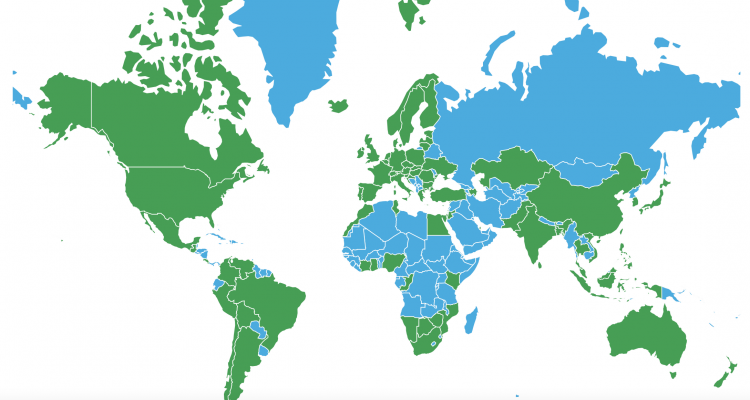Record high reporting levels, rising public trust and increase in regulations
Almost all (96%) of the world’s largest 250 companies (the G250) report on their sustainability performance. For the N100 – 5,200 companies comprising the largest 100 firms in 52 countries – 80% do so (from just 18% in 2002) as founded by the 2020 KPMG Survey of Sustainability Reporting.
Across all companies surveyed, the GRI Standards is the only sustainability reporting framework that can demonstrate widespread global adoption. Around three-quarters (73%) of the G250 and two-thirds (67%) of the N100 use GRI.
Other findings of the KPMG research include:
- In 14 of the 52 countries covered, including all geographic global regions, sustainability reporting rates now exceed 90%
- Companies applying third-party assurance to their sustainability reporting has exceeded 50% for the first time
- Most companies disclose SDGs-related performance, yet more transparency is needed on their negative as well as positive contributions to the SDGs
Rising trust in sustainability reporting around the world
Research across 27 markets has found that trust in how companies communicate their sustainability performance has increased to a record 51% this year.
The GRI-GlobeScan public opinion poll asked 1,000 people globally to indicate whether they agree that companies are honest and truthful about their social and environmental performance. The level of trust is the highest since the survey began in 2003, when it was at 30%.
Substantial increase in sustainability reporting regulations around the world
The Sustainable Development Goals (SDGs) have become a global reference for sustainability reporting policy. While explicit reference to the SDGs in disclosure requirements remain limited, they are often implied through the themes addressed. Links to responsible business, employment and accountable institutions (SDGs 12, 16 and 8) are widespread. Reference to public health and education (SDGs 3 and 4) is low, something anticipated to change following the COVID-19 pandemic.
Europe continues to drive the ESG disclosure agenda, accounting for 245 reporting instruments, while the Asian markets (174) are increasingly active. North America has a low number of reporting provisions (47), a fact that in part reflects the lower number of national jurisdictions in North America. At country level, higher numbers of reporting provisions, including reporting requirements and resources, was found in countries such as the UK, Spain, USA, Canada, Brazil, Colombia and China. More findings in the 2020 edition of Carrots & Sticks.


